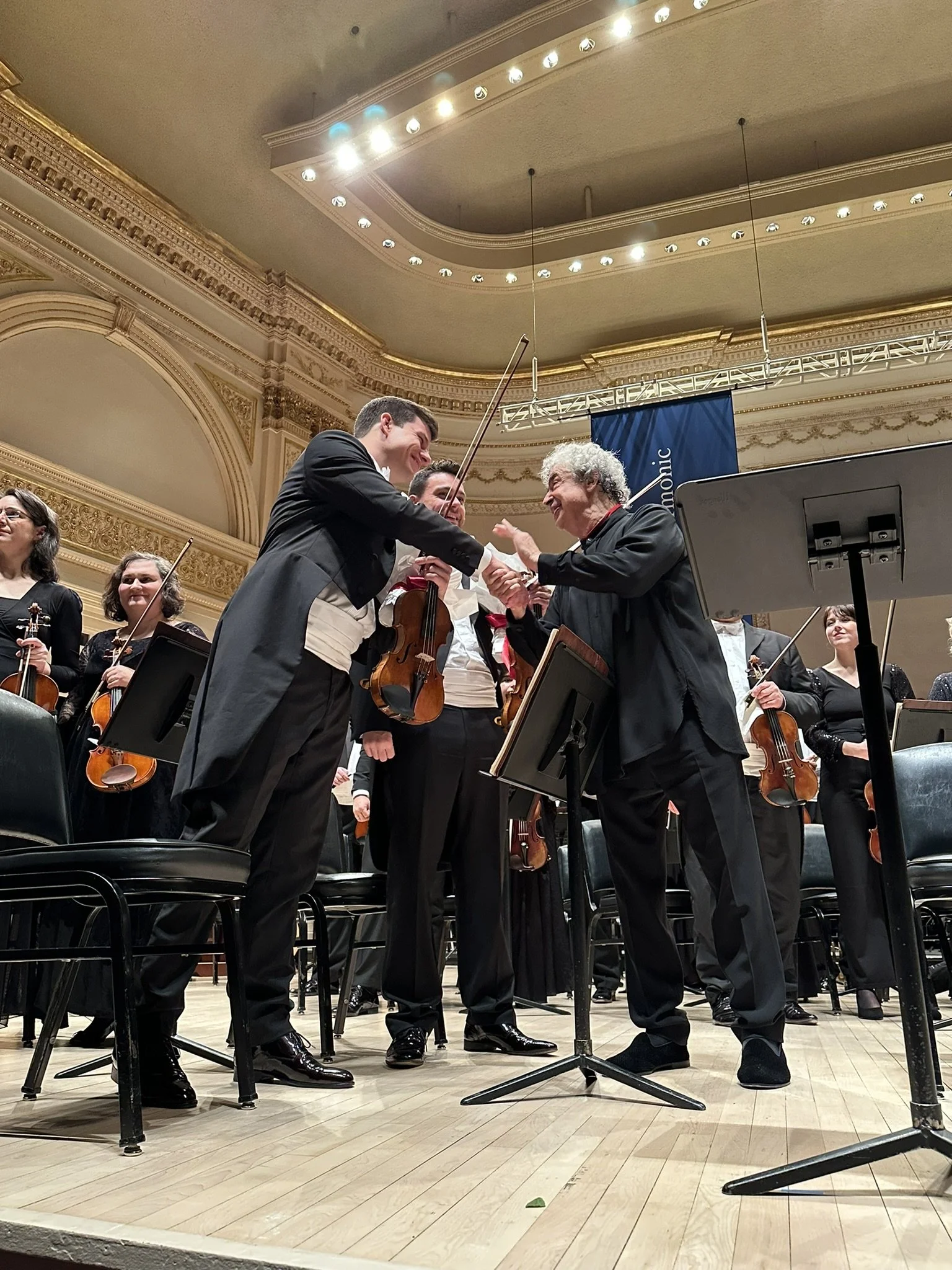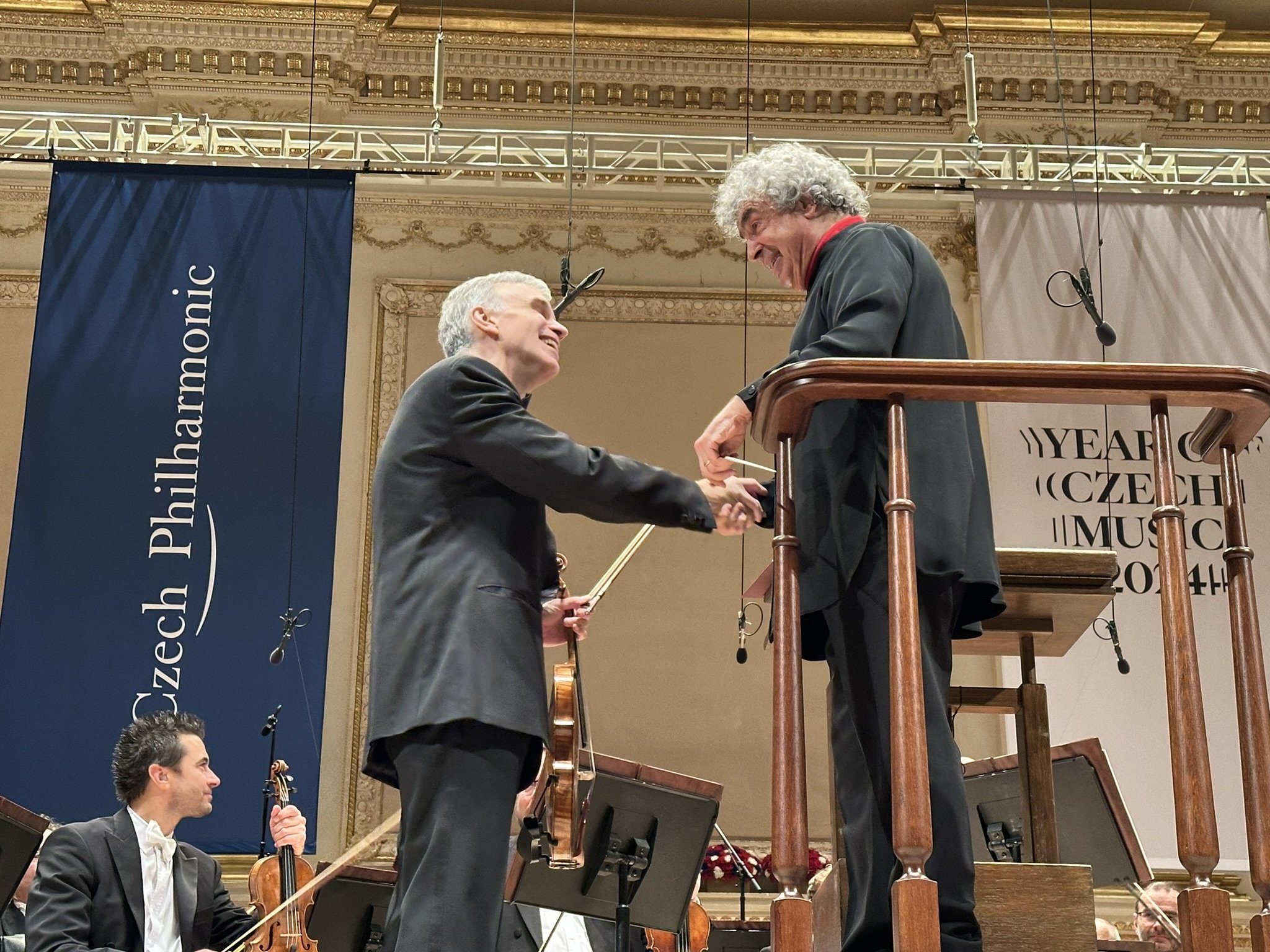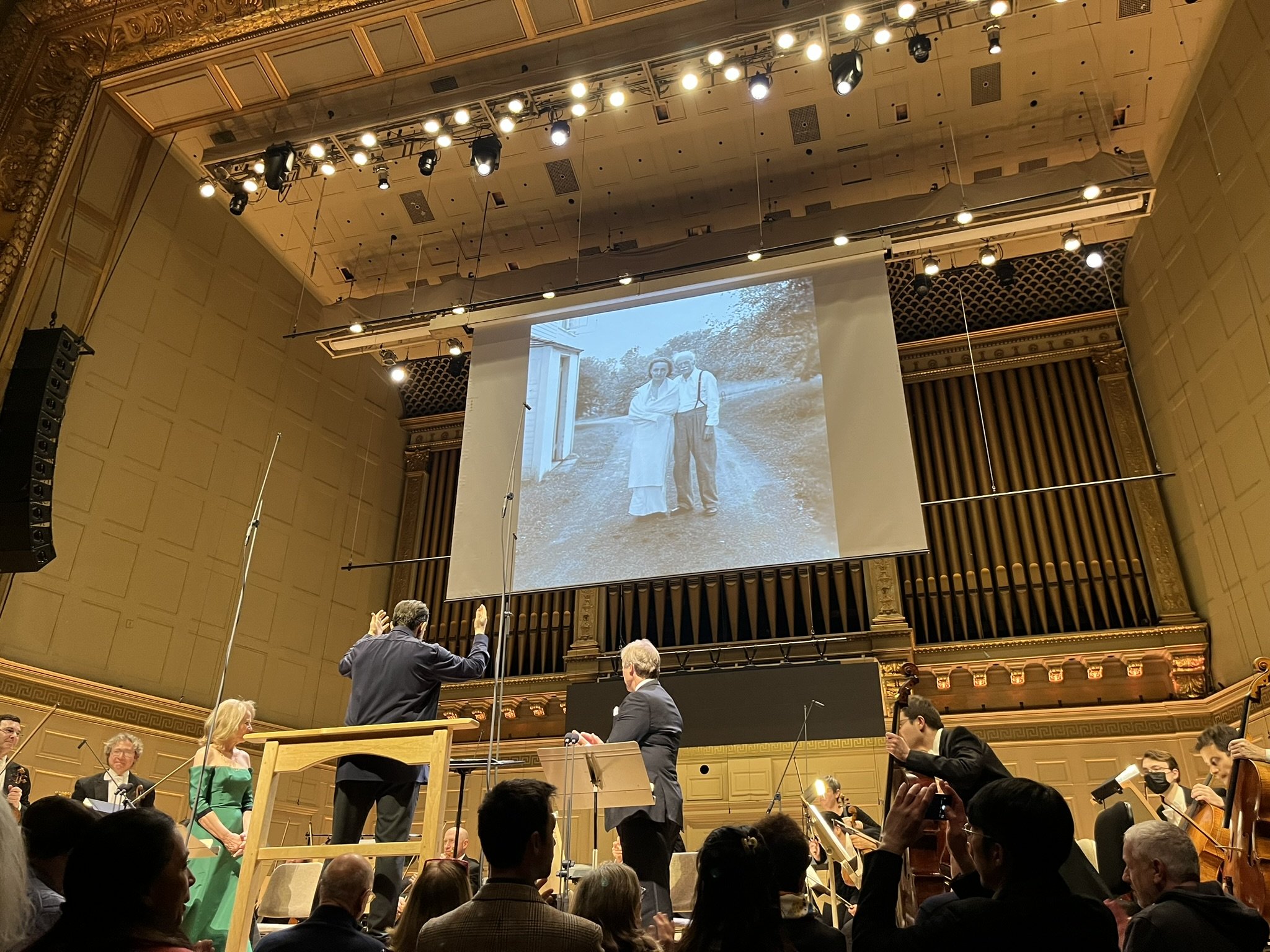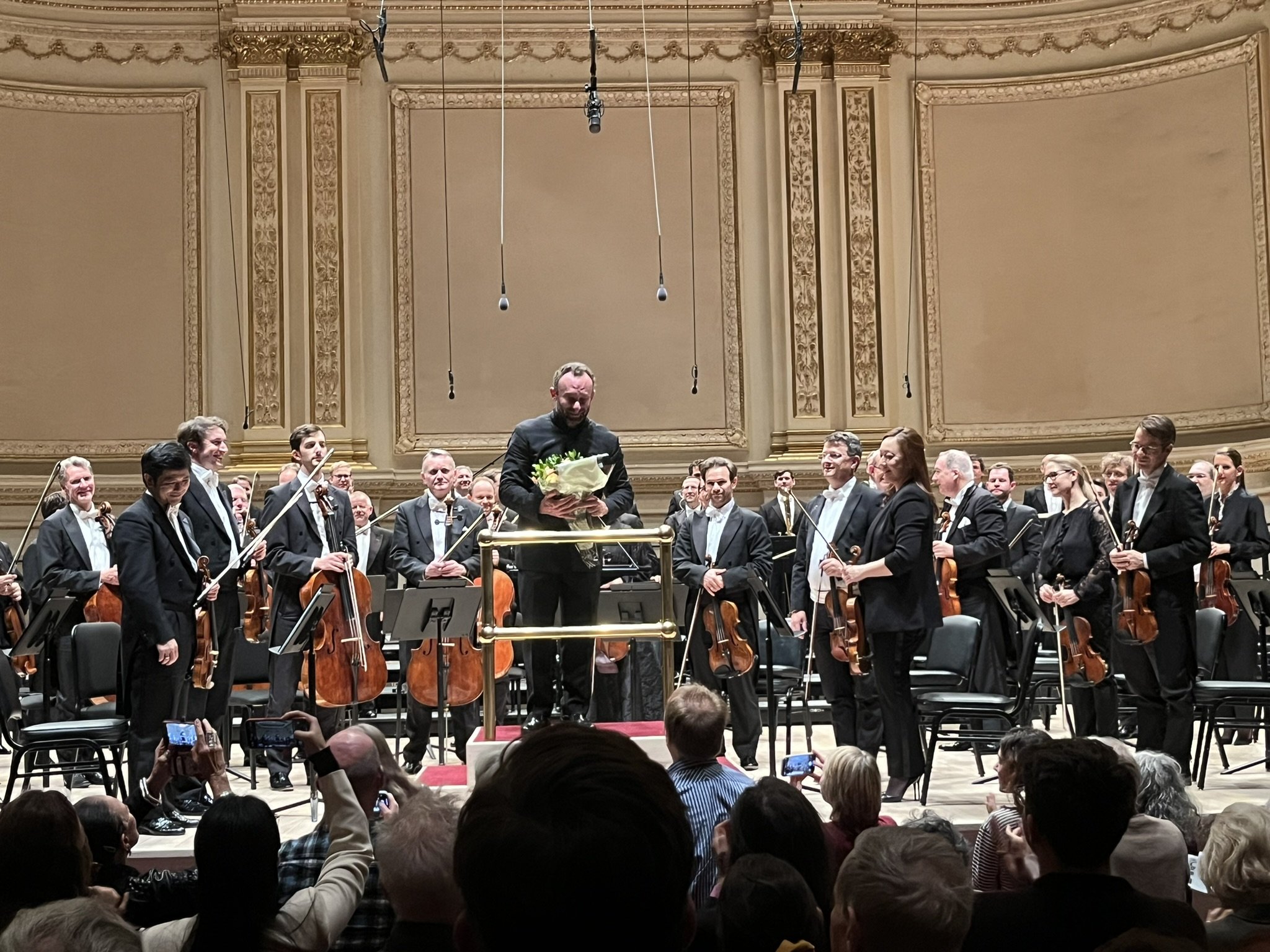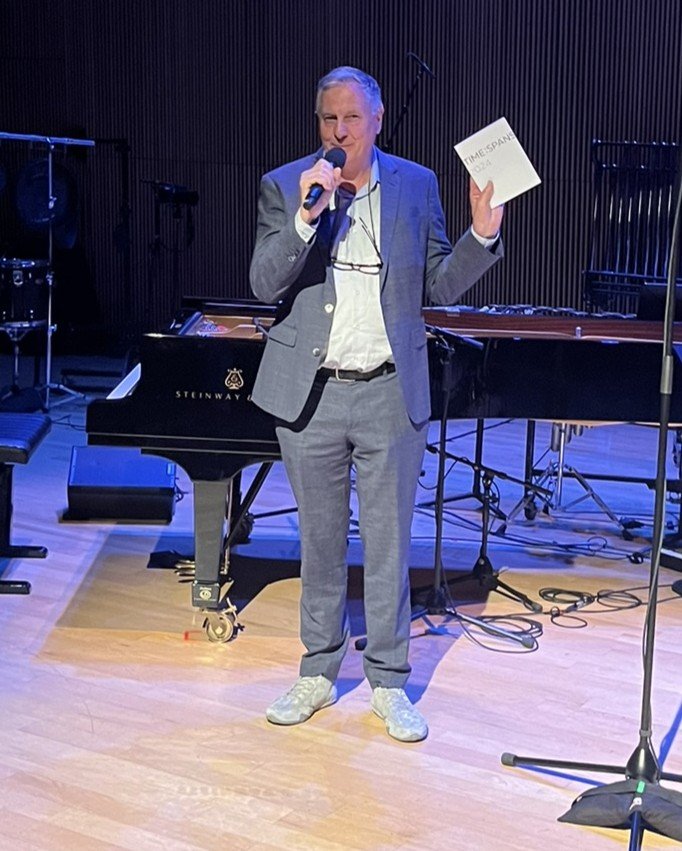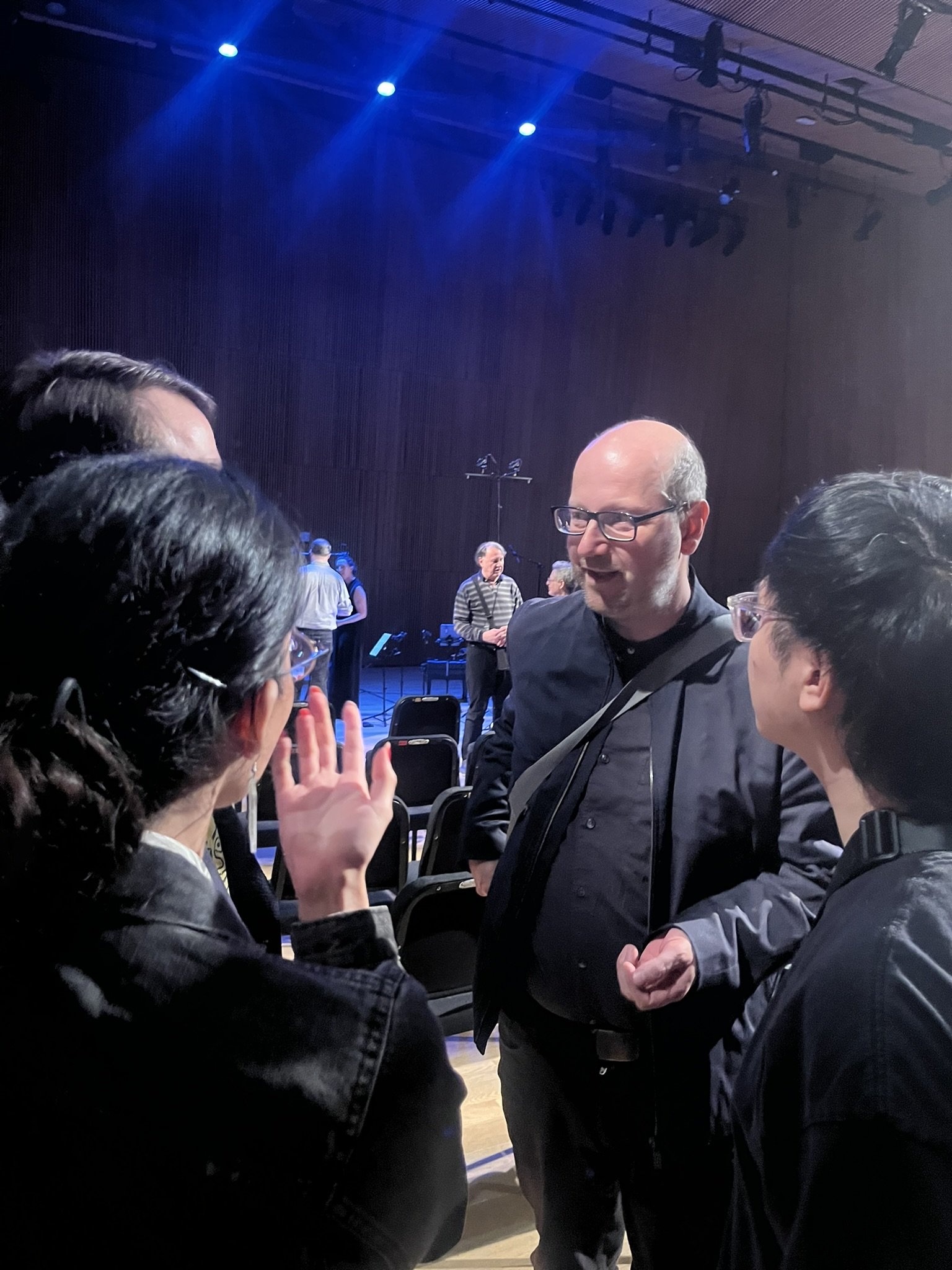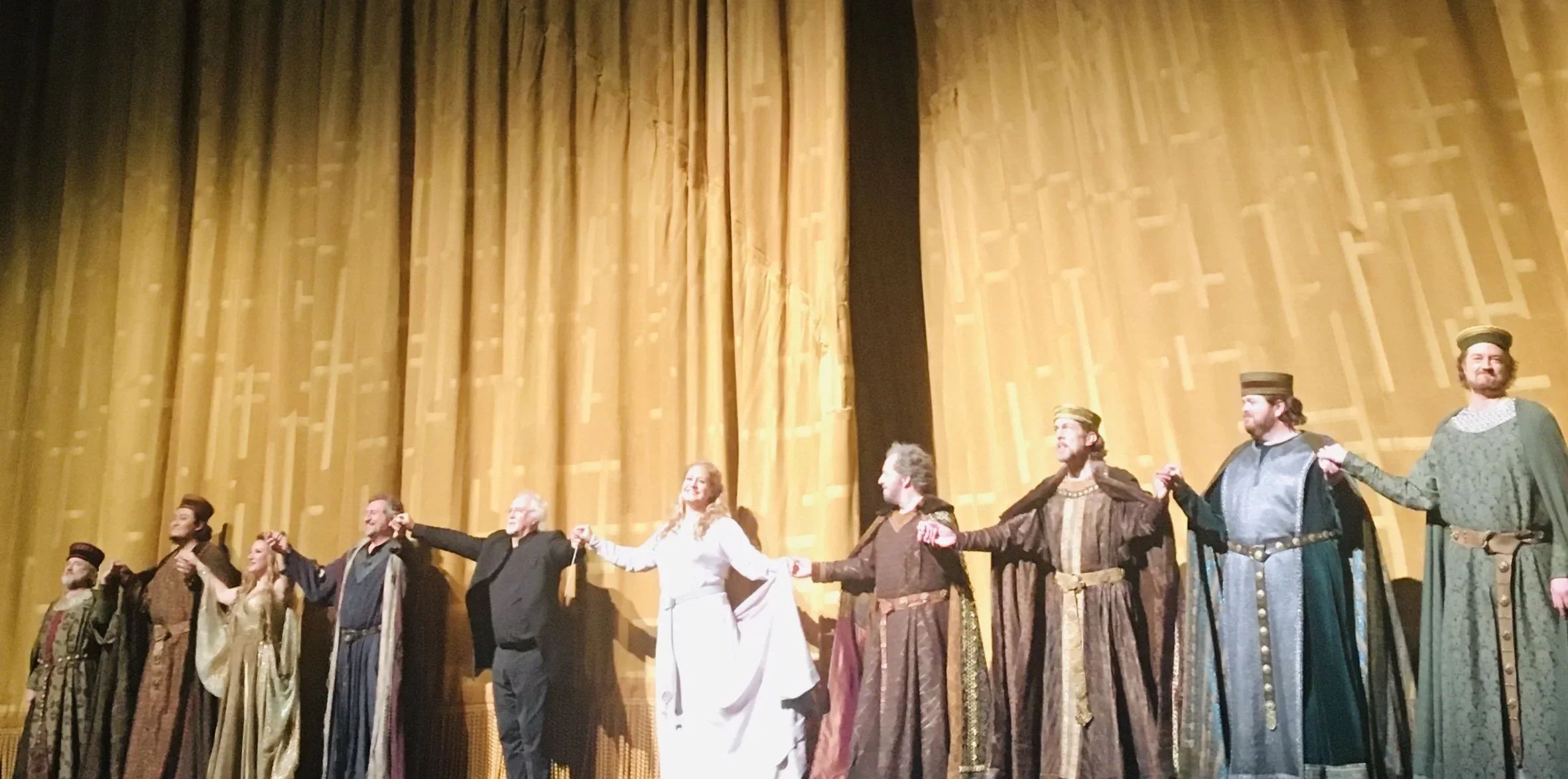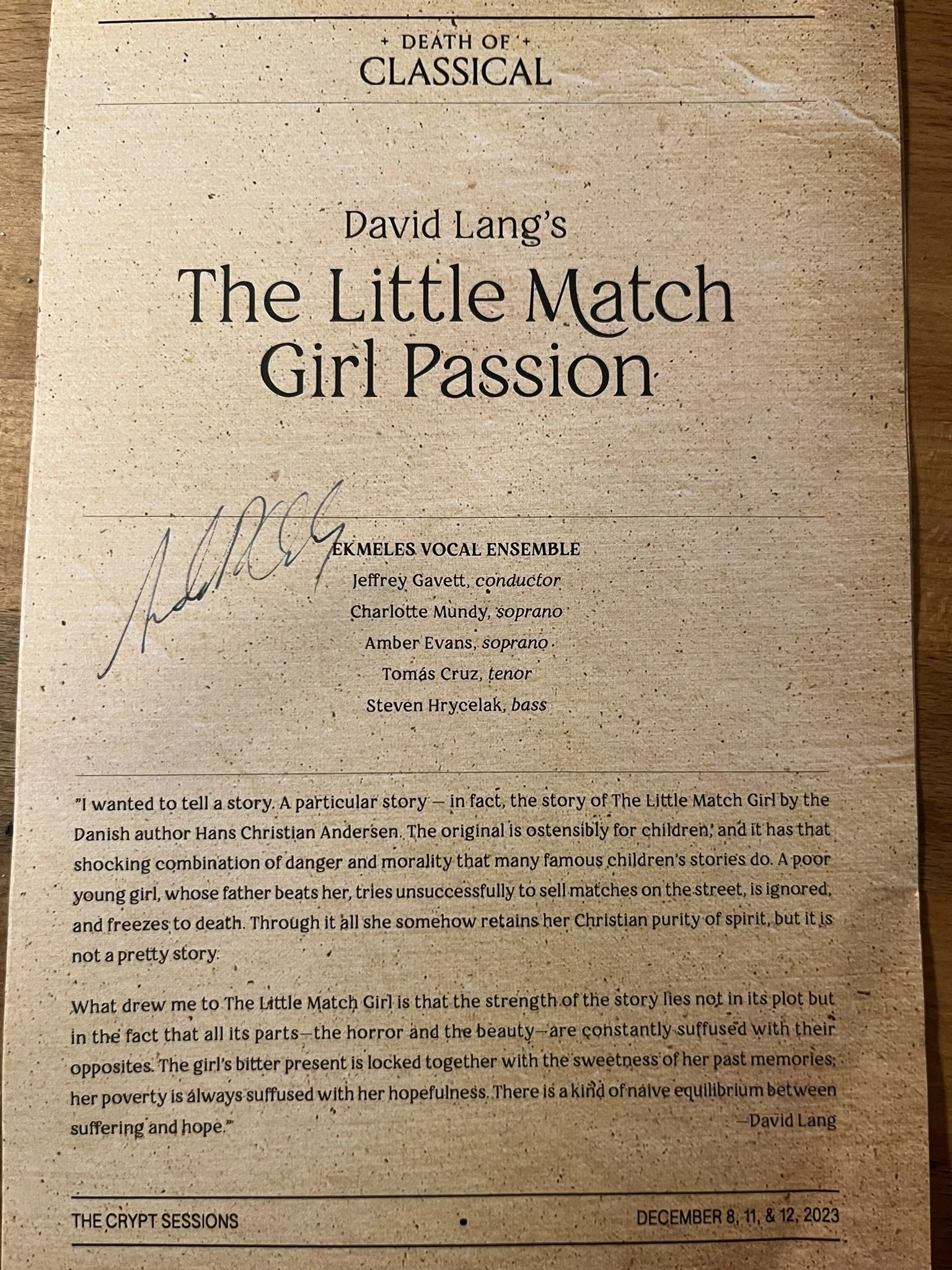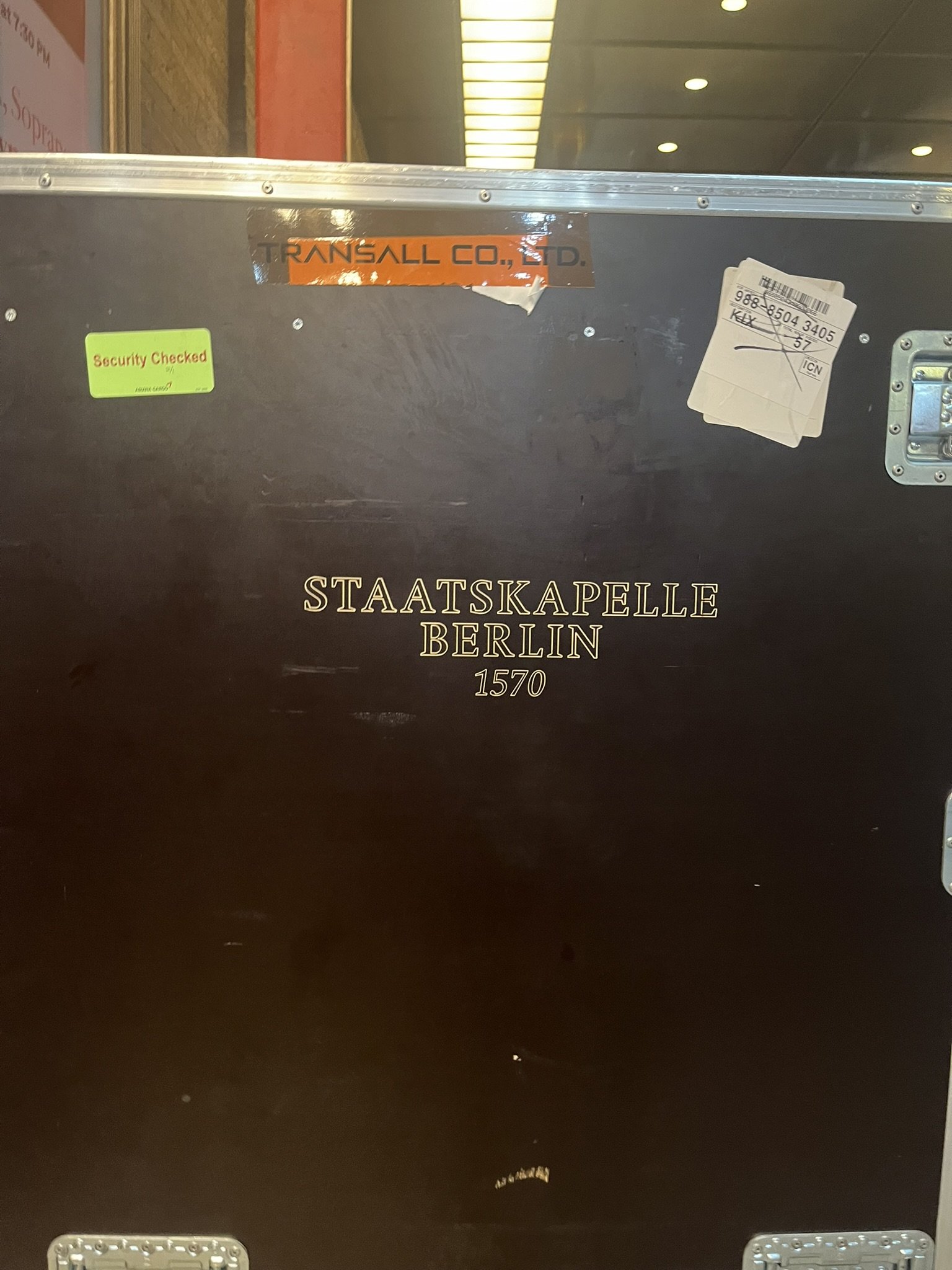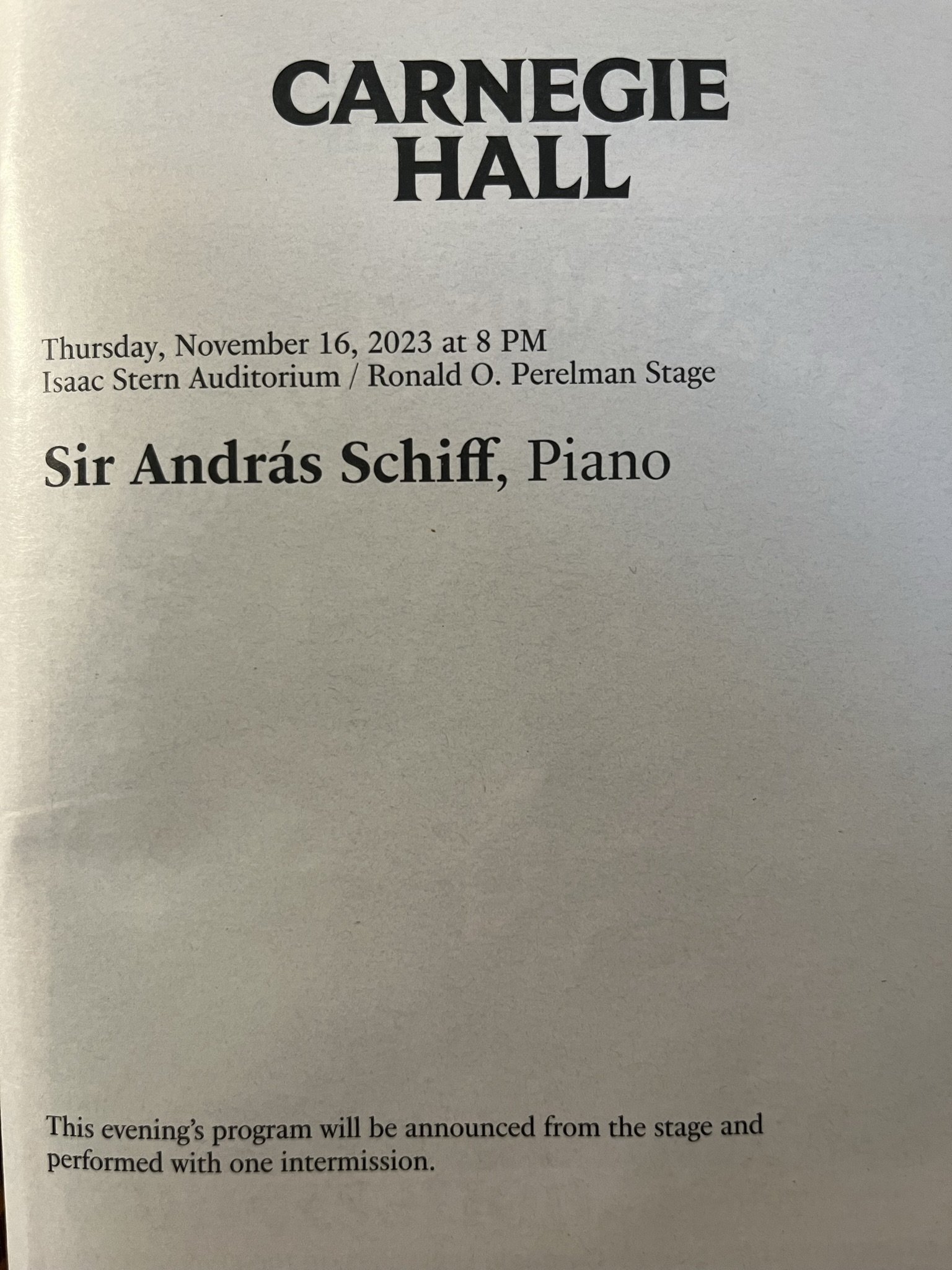Trifonov and the Czech Philharmonic brought Dvořák and Janáček to life at Carnegie Hall. The oboe sang like a bird, the bass turned like a waterwheel, and Janáček’s Glagolitic Mass conveyed passion, homeland, and Slavic spirit.
Read More100 Years of Czech Music, Shaham, Bychkov at Carnegie Hall,
To celebrate the conclusion of the "Czech Music Centennial Year," Bychkov and the Czech Philharmonic appeared at Carnegie Hall. Gil Shaham’s performance of Dvořák’s Violin Concerto was electrifying—brilliant in every solo, flowing seamlessly with the orchestra, like a game of music in motion. Bychkov, still recovering from back surgery, conducted Mahler’s Fifth with heartfelt intensity, drawing a warm, rich sound that mirrored the shifting currents of Mahler’s music. The orchestra’s breathing and awareness brought Prague and Moravia to life in every note. Having heard six orchestras recently, this performance reminded me how profoundly music can challenge and renew one’s own perspective.
Read MoreMet brings Strauss back / Die Frau ohne Schatten
Strauss’s Die Frau ohne Schatten opened at the Met. His fourth collaboration with Hofmannsthal, premiered in Vienna in 1919, the opera is filled with mystery and romance, depicting love and compassion through grand orchestration. Yannick Nézet-Séguin led the orchestra with brilliance, guiding the rapidly shifting expressions with clarity and playfulness. Flute, clarinet, and string solos colored the story, while the orchestra’s collective breath brought Strauss’s music to life. The singers were superb, and in Act II, the cello solo filled the hall with a warm, inviting resonance.
Read Moreコンサートマスター、エシュケナジーのバイオリンソロやトゥッティでバイオリンの箱の中が、コーーーーーーーっと鳴っていた。物凄くすっきりします。
New Titan = Concertgebouw + Mäkelä at Carnegie Hall
The Royal Concertgebouw Orchestra, conducted by Klaus Mäkelä, performed at Carnegie Hall. The same as Jansons’ 2005 program with the Vienna Philharmonic, the pairing of late Schoenberg and the opening of Mahler’s Symphony No. 1 flowed seamlessly. The string ensemble was lively and focused, with an excellent concertmaster solo. In Mahler, Mäkelä’s precise and dynamic conducting brought out the richness of each section, highlighting strings, brass, and solos, culminating in a finale that felt like a hymn to humanity. Mäkelä’s repertoire choices connected present and future audiences, bringing the music to life.
Read MoreRoyal Concertgebouw and Klaus Mäkelä at Carnegie Hall
Klaus returned to Carnegie Hall with the Concertgebouw. Last year’s Paris performance was too unruly to reveal him. How would he meet New York’s standards? His Rattle-like stance showed confidence. I saw early memorable performances under his direction. Opening with a contemporary work on pregnancy and childbirth, he gave a day invaluable for future audiences and composers. The future of Klaus and the Concertgebouw looks bright.
Read MoreBoston Symphony Orchestra and Andris Nelsons
Ten years after Nelsons came to Boston, the Boston Symphony Orchestra performs Mozart with richness. After the pandemic, their performances were deeply satisfying. Following The Abduction from the Seraglio, the audience’s enchanted waiting reflected ten years of Nelsons’ cultivation. Putz’s work sets lovers’ letters to music, with singers performing the words and projections showing letters and photos. Such works could bring classical music closer to daily life, letting fleeting melodies linger in people’s hearts.
Read MoreBerliner Philharmoniker at Carnegie Hall
Even the audience felt like soloists. Under Kirill Petrenko, the orchestra combined energy and precision, with Vilde Flang’s violin stunning. The program included Rachmaninoff’s Isle of the Dead, Korngold’s Violin Concerto, and Dvořák’s Symphony No. 7. Individuality and freedom abounded, yet the music unified everyone. Highlights were Rachmaninoff’s intense solo, Korngold’s chamber-battle-like interplay, and Dvořák’s cello tutti. Petrenko proved he creates precise, vivid, and powerful musical experiences.
Read MoreMao Fujita at Carnegie
Mao performed at Carnegie on Sunday afternoon. Yashiro felt like him, and the high notes in the second half were beautiful, reminiscent of Trifonov’s first Carnegie visit. Liszt was great, but Yashiro was amazing. Mozart and Beethoven felt vivid, with Mao’s breathing and energy connecting to the music like Pollini or Brendel. The hall was relaxed; I could see every detail and hear even snoring during Appassionata. Mao looked happy throughout. His performance hinted at Chopin’s interest in Beethoven, just as Yashiro reflected Scriabin. Classical music’s power to unite different approaches was deeply appreciated in these chaotic times.
Read MoreYarn/Wire: Challenge to Difference
Vivaldi’s Spring experiments with harmony and ingenuity; Yarn/Wire challenges differences using various tools, even everyday objects. In AUDITORY SCENES, two performers applied electric massagers to a large drum, creating a sensation never experienced before. No familiar melodies, yet the tools connect to everyday life, opening minds like the flow of the Ganges. First-time viewers encounter a test of harmony and ideas, breaking mental shells and expanding perception—a refreshing experience before the busy concert season.
Read MoreCandillari’s prayer. I felt the ears she has developed from everything she has seen and heard.
カンディラーリの祈り。彼女がこれまでに見たり聴いたりしてきた耳を感じた。
Candillari's Ear and Heart at Juilliard Orchestra
On Monday night at Alice Tully Hall, the Juilliard Orchestra, conducted by Daniela Candillari, was full of warmth, dedication, and energy. Bacewicz’s Overture, written in Nazi-occupied Poland, was lively and upbeat. Juilliard student Sophia Werner’s Barber Violin Concerto showcased a fresh, rich tone and impressive dynamics. Shostakovich’s Symphony No. 10 conveyed deep fear and pain, with hesitant timpani and a sharply ironic concertmaster solo, all brought out masterfully by Candillari’s careful, expressive direction.
Read MoreYulian's Both Hands
Yulian Avdeeva performed in New York, filling the hall with emotion. Since having COVID, I felt a tightness in my heart, tears streaming, yet Liszt flowed through Yulian’s hands like a dream—rich, elaborate, and story-filled. Chopin’s delicate yet bold works were rendered on an orchestral scale. Yulian’s program wove Chopin and Liszt masterfully: Dance, Barcarolle, Chopin’s homage to Beethoven, Polonaise, and Liszt’s B minor Sonata. The encore was Liszt’s arrangement of Verdi’s Rigoletto quartet. A truly wonderful Romantic experience.
Read MoreAt Pioneer Works, Earl Howard and ICE, The opening venue since 2016
Inspired Inspiration in Brooklyn
The blind man, barefoot, enjoyed musical sparks with ten musicians. At Pioneer Works in Brooklyn, he and the ICE members engaged in a sonic conversation that seemed to awaken memories and imagination. In Rick’s piece, words transformed into sound, vividly emerging in the space. This new musical experience, rooted in everyday life, offers those of us living today a sense of guidance toward the future.
Read MoreThomas Fichter, the festival’s executive and artistic director. Saturday, August 24, 2024 at Mary Flagler Cary Hall, DiMenna Center for Classical Music
Time Spans: Life of Music 音楽の命 ニューヨーク現代音楽フェス
Yarn/Wire performed Olga Neuwirth’s Black Dwarf (2023) and works by Peter Eötvös at the Timespans 21st Century Music Festival in New York on August 23. Curator Thomas Fichter emphasizes giving new works sufficient rehearsal time so they can develop a “life of their own,” allowing each audience member to connect uniquely through experience. The music’s seeds transcend time and senses. Next year, the program will tour Montreal, Hesse, and Darmstadt.
Read MoreKlaus Lang: Space Paradox
At a New York studio, four string instruments carried me on a journey through time, their sounds clear and unclouded by audience noise. Lang invited us to experience the beauty of sound itself, and the repeated notes evoked vivid memories of steppes, winter winds, and morning mist with swans. Though the sounds traveled, they returned to their origin, and when the concert ended, even everyday noises seemed musical—until morning, when the world returned to normal.
Read MoreTannhauser, the old-school at Met, proves just as presentable — and arguably more necessary in 2023
Schenk’s 2023 Met production of Tannhäuser showcased a thrilling contest of skill among singers, with each performer elevating the others. Andreas Schager (Tannhäuser) ranged from joy to despair; Christian Gerhaher (Wolfram) conveyed elegance and warmth; Ekaterina Gubanova (Venus) thrilled with her voluptuous tone; Elza van den Heever (Elisabeth) impressed with luminous, effortless singing. Donald Runnicles led the orchestra with color and clarity. The Pilgrims’ Chorus was overwhelming, leaving a lasting impression.
Read MoreContemporary Artist,Trifonov at New York
He was considered a classical music concert pianist, but just a contemporary artist to me. His live art would fundamentally change New York's commercial art scene, but it was taken place at Carnegie Hall on 12.12.2023.
Hammerklavier sounded like paint being thrown onto a huge canvas.
It was a sound installation that blew away my knowledge and experience.
"Finger is heart", he said in this interview. What I saw was like his spirit through Steinway.
Read MoreBruckner 8th by Julliard Orchestra
Fresh Bruckner 8th by Juilliard Orchestra, conducted by Donald Runnicles. So precious to have their discovery and sensation together under amazing the maestro’s navigation.
Juilliard Orchestra
Donald Runnicles, Conductor
BRUCKNER Symphony No. 8 in C Minor
Read MoreIn the Crypt Session
On a December Friday night in a Manhattan church basement, Andrew Ousley curated The Crypt Session, an intimate concert for 40–50 attendees. The program included David Lang’s Four Voces and Minimized Effective Instruments and The Little Match Girl Passion. Every detail of the performance, from the acoustics of the curved stone space to the musicians’ preparation, created a deeply immersive experience, connecting centuries of Western musical development and delivering an unparalleled, profoundly moving sound.
Read MoreStaatskapelle Berlin's Brahms, "Heart and Mouth and Deed and Life"
Brahms’s music, with its “subtle symmetries,” blends Bach’s structure, Beethoven’s dynamism, Schubert’s lyricism, Schumann’s romanticism, and German folk influences, while reflecting the modernity of Wagner and Strauss and admiration for Baroque composers. At Carnegie Hall, the Staatskapelle Berlin under Yannick Nézet-Séguin performed all Brahms symphonies, offering a rare view of his complete vision. Combining dark sonorities with sensuous brilliance, Brahms’s works—admired even by Schoenberg—came vividly to life through virtuosic solos, choral brass, and delicate wind blends, testifying to both his humanity and the shared artistry of musicians and audience.
Read MoreBösendorfer by Schiff at Carnegie Hall
At András Schiff’s Carnegie Hall recital, given without a program, the atmosphere felt intimate, almost like being at home with the pianist. He spoke and played with remarkable presence, his Bach sounding spontaneous, as if the composer himself were improvising. This sense of immediacy shone in his Mendelssohn and Haydn, where he shaped each line with clarity and boldness, letting the music’s narrative emerge effortlessly and resonating with listeners of all tastes.
Read More
